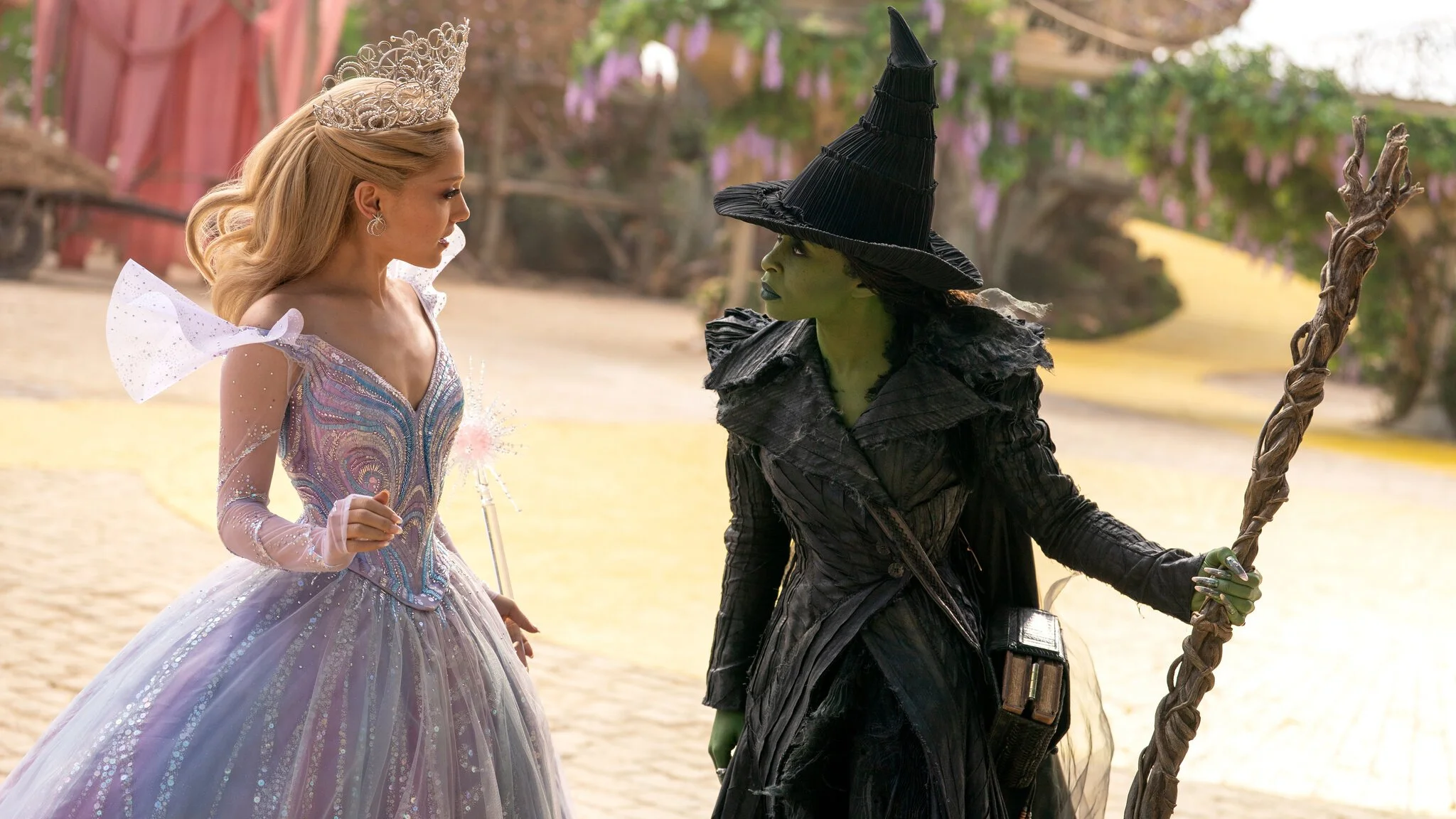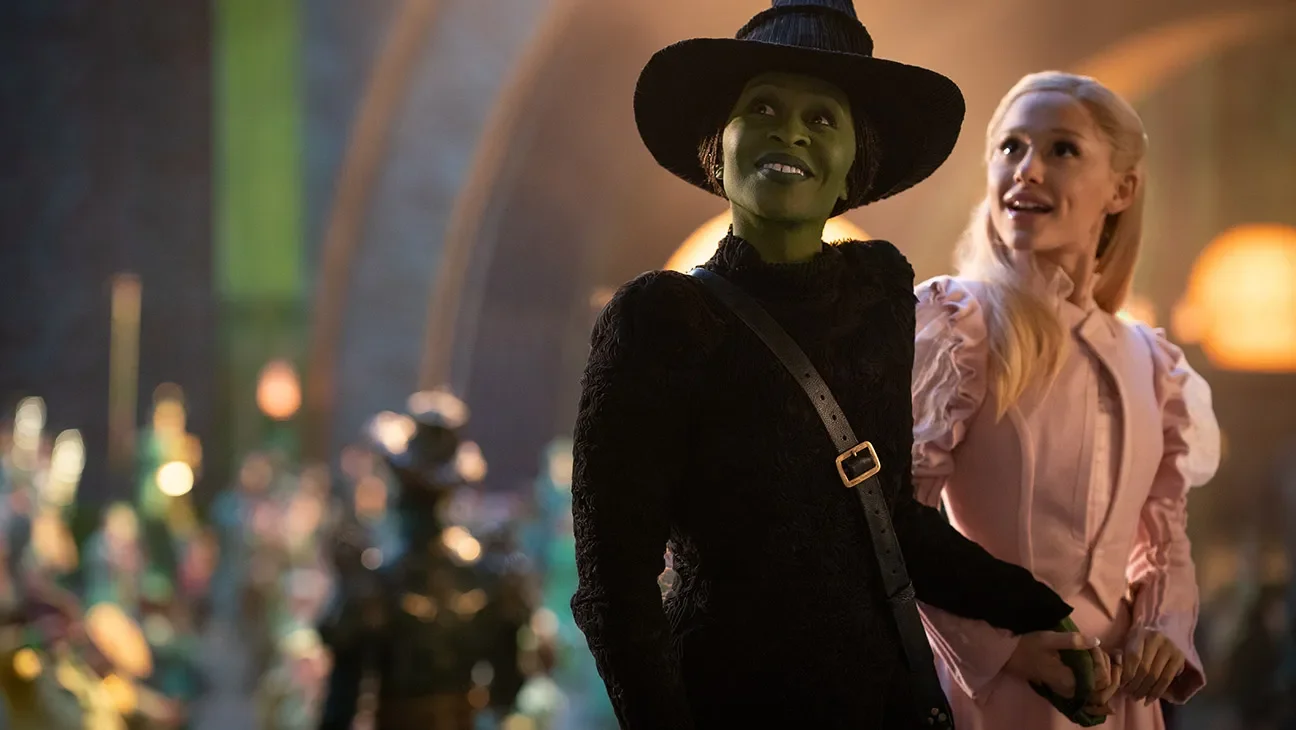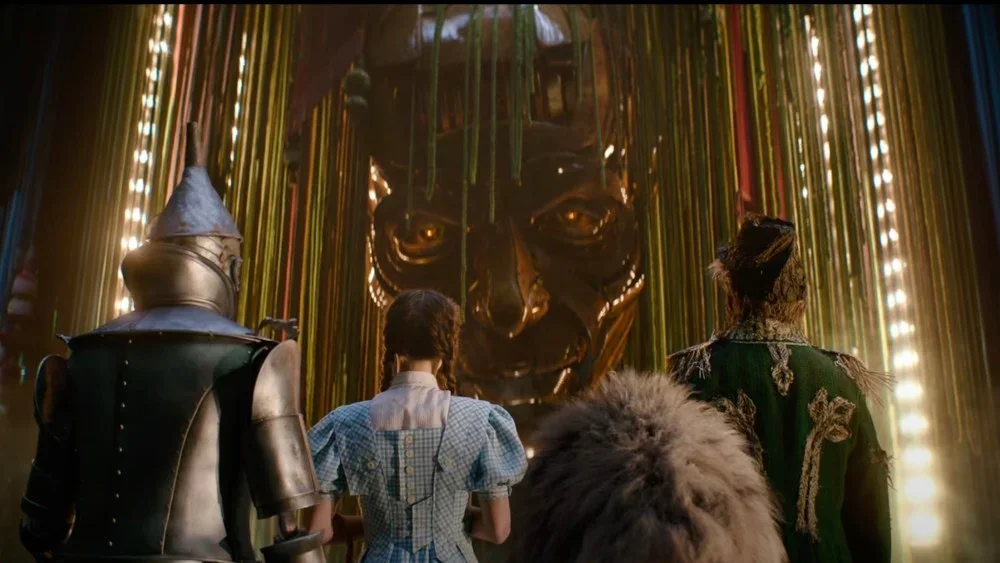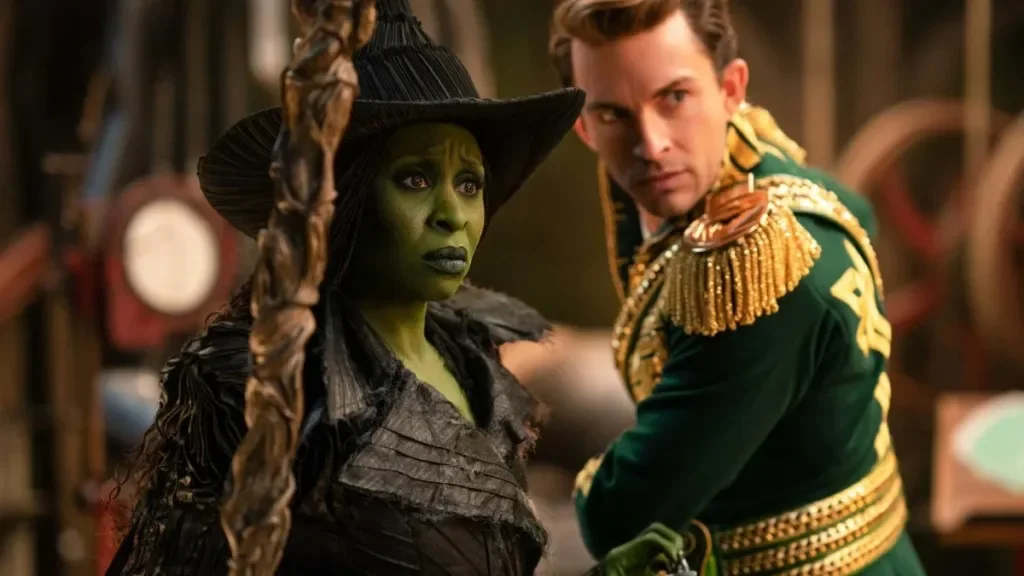‘Wicked: For Good’ Review: A Reductive Reach Towards Defying Gravity
Jon M. Chu and his eclectic cast return to the magical world of Oz to deliver what amounts to nothing but an overly infantile and ultimately dishonest adaptation of its source material.
You don’t need this writer to tell you that the first ‘Wicked’ was a major success. Debuting with the biggest global and domestic opening weekend for a movie based on a Broadway show and captivating casual fans and theatre lovers alike, it can speak for itself.
But let’s establish something else important, this writer is also… not exactly… the target audience for ‘Wicked: for Good.’ Retrospectively, there was something about the first film that stuck with me. Despite the overly cautious and sometimes-stale direction, paired with a visual language that had no idea what it wanted to convey, the light that shone through it all were the two leads, with electric performances from Ariana Grande and Cynthia Erivo that gave the film an inspired central warmth.
Making use of the extra time the original musical didn’t have to spare, the two leads held their own, birthing precious moments of intimacy between themselves and a genuinely melancholic sense of urgency over a friendship we know won’t last. At the end, when we leave these characters, Erivo’s Elphaba somberly flies off into an opaque pink sunset, the defining colour of Grande’s Glinda, reaffirming how the entire story is built off the love the two share for each other and how, for better or worse, they’ll always need each other in their lives.
And the sequel? Well as iconic as it may be, it’s no secret that the second act of the original stage play flounders and, unfortunately, Wicked: For Good only manages to be an extension of that, magnifying the flaws. It seems that anytime a corner is turned to find something truly great, the film doesn’t just refuse to sustain it, but instead self-sabotages and actively works against itself— the elaborate, elegant sets and glorious costumes are unsurprisingly incredible once again, only to be bogged down by frightfully thoughtless direction. There is also certainly a great eye for compositions behind the camera, yet it is overwrought by inane color and lighting choices. While it may entertain some who knew what they were getting themselves into, the lack of true intentionality spills into every corner, with even the musical elements feeling drawn out due to a lack of harmony for the audience. Very much to his credit, there are moments that shine due to Chu’s directing background of musicals, ala the Step Up sequels. The generosity he provides by focusing on wide shots as opposed to tight coverage allows the fantastic choreography to flow freely and is evidence of his understanding of the attention needed to give to every single performer in the moment, but this is quickly undercut by a sharp lack of contrast. We immediately get distracted by the obnoxiously bright and poorly colored part of the frame, making it impossible to give these sequences and its performers the flowers they deserve.
Branching on from that, I don’t think I was the only one not having a good time, as it seems every single actor was only permitted to use their first take. Grande and Erivo soar as expected, anchoring a sentimental charm throughout, but the rest of the cast falls flat in the shadow of the previous film. Jeff Goldblum and Jonathan Bailey are delightful as always with the little they have to work with but their energy quickly amounts to feeling somewhat restrained. The phrase “closed mouths don’t get fed” doesn’t exactly ring true here either, since Michelle Yeoh as Madame Morrible gives perhaps the most direly phoned-in performance from a blockbuster movie this decade.
The politics of ‘For Good’ quickly become a messy affair. The first film felt mostly confident in its (almost eerily timed) exploration of anti-establishment. The clear scapegoating of vulnerable minority groups to emphatically question how and why we treat those that look different to us the way we do. Yet in this sequel, all of that is hindered by a strange need to overexplain and absolve itself of the courage that defined the first film. Instead resorting to being a didactic defence for those that enable the growth of facism. The film absolutely has its moments, with a sheltered Glinda trying her best to burst from the literal bubble she gets placed into, but refuses to actually say anything worth it, and instead opting to create a false catharsis of idealism with the people of Munchkinland.
If the thesis of the original 1939 Victor Fleming film was a conservative stance on realising you’re right where you need to be, that you already have everything you need, then this film strangely attempts to double-down and signify that we shouldn’t even try to be exposed to other beliefs. That it’s seemingly perfectly fine to stay exactly as you are without questioning things because there apparently is no illusion of choice— in the current political climate, this comes off far more artificial than intended, and a film without intention isn’t really worth giving your time to at all. On that topic and similar to the first film, this sequel almost relishes in wasting time. Taking pivotal moments from the Broadway show and stretching them out for no real reason but to pad the runtime, with this being especially apparent with the cutting of sequences in a way that refuses to hold space for anything but total tonal whiplash. Almost as if it was purposefully trying to mimic the physical limitations of the stage, but it doesn’t play as anything more than pure laziness.
If the camera lacks any motivation, why should I have any? Supported by a hollow aesthetic, ‘Wicked: For Good’ manages to be a thoroughly unengaging, and even worse, uninspired adaptation that seems to have only really been made out of an obligation that quickly burnt into a burden. The desperation to evoke the magic of the original Wizard of Oz as well as the dynamism of the iconic musical creates a dissonance that muddies the identity this film is trying to form and alienates just about everyone in the audience in the process. They say no one mourns the wicked, but no one should mourn this franchise.




